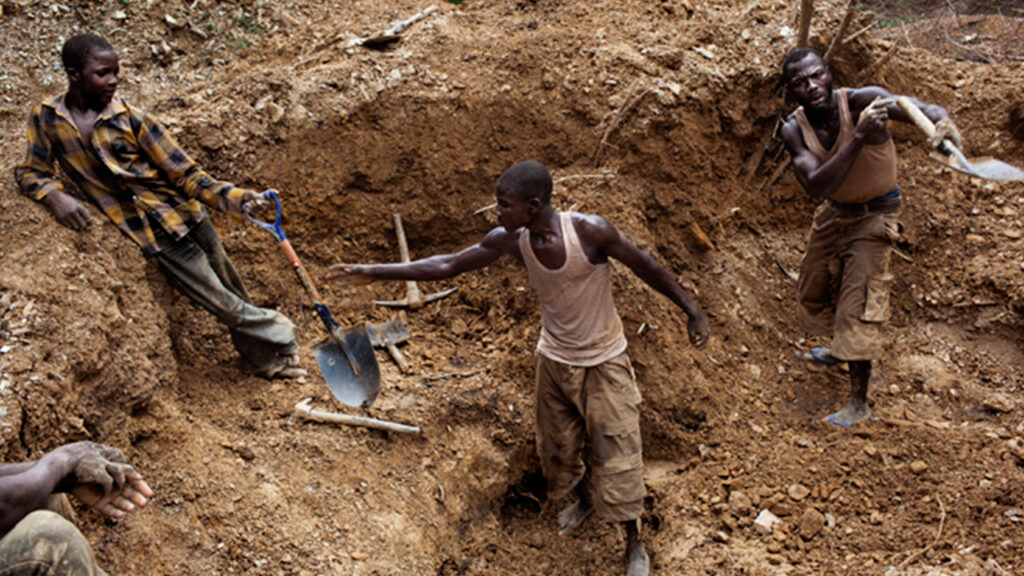By Sunkanmi Adewunmi
Nigeria is pushing hard to expand its solid minerals sector, but civil society groups warn the boom carries serious risks. CAPPA, which recently appointed activist Auwal Musa Rafsanjani as its advisory board chair, says the global rush for “green minerals such as lithium” is already triggering land grabs, displacement and environmental damage. Although mining has grown from under 0.5% to about 4.6% of GDP in a decade, CAPPA cautions that communities may pay the price if safeguards remain weak. The group warns Nigeria could “repeat the tragedy of the Niger Delta” unless regulation, transparency, and community consent are enforced — stressing that “there can be no just transition if communities do not share in its gains.”
The Federal Government is trying to calm fears. In 2025 the Minister of Solid Minerals unveiled a new roadmap touting the country’s “immense potential” in critical minerals and promising jobs, industrialization and better oversight. The FG says it will support both artisanal and industrial mining, attract investment and ensure that “mining benefits flow equitably to our communities.” In essence, the government’s message mirrors civil society demands: growth must not come at the expense of the people living on the land.
Mining in Nigeria’s Regions: Promise and Peril
Nigeria’s mineral wealth stretches across many states, often in communities where farming still dominates daily life. In Plateau State, for instance, tin and columbite mining has long brought jobs and higher incomes. Studies note that mining there created employment, improved roads and clinics, and helped some families afford better schooling and healthcare.
But the gains come with steep costs. Research shows that tin mining has caused “land degradation and water pollution,” undermining crop yields and food security. Abandoned pits, eroded soil, and contaminated streams have damaged forests and farmlands, leaving many farmers worse off even as mining wages rise.
Similar patterns appear elsewhere. Nasarawa, Kaduna, and Kogi hold dozens of mineral types and attract growing extraction. Zamfara’s artisanal gold rush, however, produced a tragedy: unsafe ore-processing caused the world’s worst lead-poisoning outbreak, with thousands of children exposed. Officials note that mining is vital for village incomes — but must be made far safer.

In Ebonyi State, lead-zinc mining has polluted soil and water so severely that crops fail and drinking water is unsafe. Researchers found contamination in “about 90% of crops” in some areas. Yet many residents say they see little benefit from mining royalties, creating a sense of injustice: the community bears the health burden while outsiders take the profits.
Taken together, these examples show the stakes of Nigeria’s mining boom. Global demand for minerals used in batteries and renewable technologies could bring real development — but without strict regulation, community consent, and environmental safeguards, Nigeria risks repeating the old resource curse.
Why It Matters
Nigeria’s mining drive matters on two fronts. Globally, demand for “green” minerals like lithium, cobalt, and nickel is soaring, putting Nigeria’s abundant deposits on the map. Domestically, mining offers a pathway to diversify away from oil and generate new jobs and revenue. But as CAPPA warns, the people living in mining regions – from Plateau to Zamfara – must share in the benefits. Mining can deliver skills, infrastructure and income, but it can also bring displacement, pollution, and unfair land seizures.
The real debate now is who gains from this boom. Civil society groups insist that host communities must have a voice and must receive their fair share. Success will depend on strict regulation, environmental cleanup, and transparent profit-sharing. Failure will leave communities bearing the costs while companies and politicians take the rewards.
Ultimately, Nigeria’s mining push is a national test: will it deliver inclusive growth, or will citizens pay the price? As CAPPA puts it, “there can be no just transition if communities do not share in its gains.”








